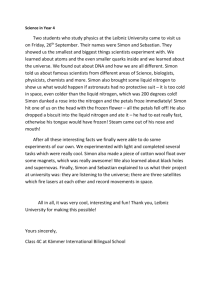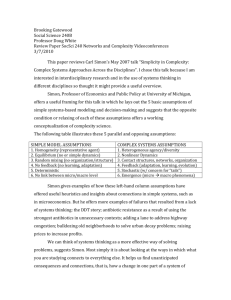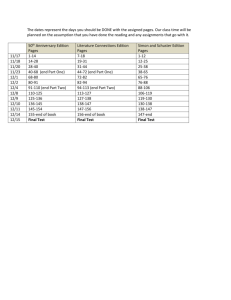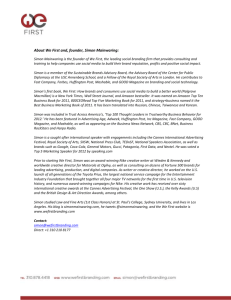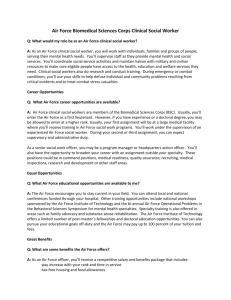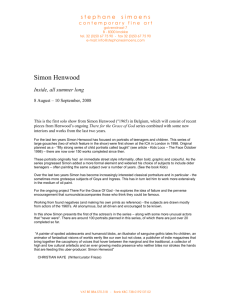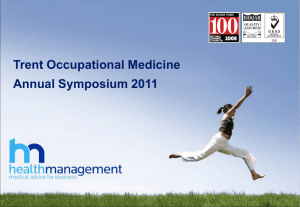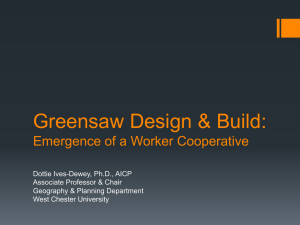Helping the vulnerable – a social worker`s perspective
advertisement
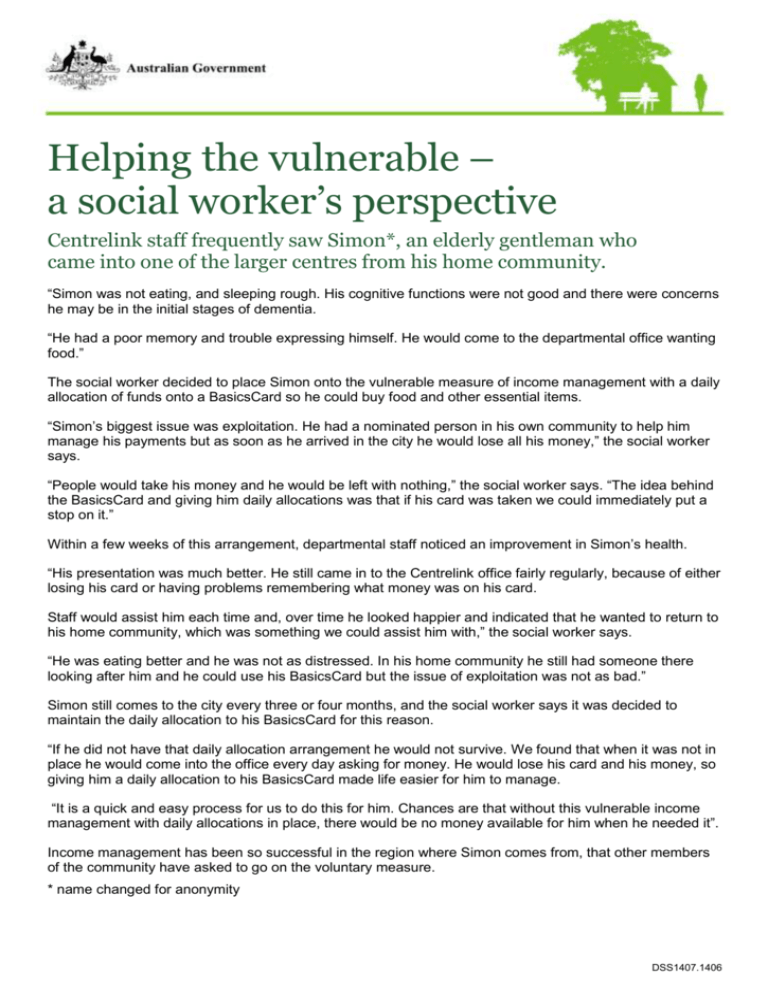
Helping the vulnerable – a social worker’s perspective Centrelink staff frequently saw Simon*, an elderly gentleman who came into one of the larger centres from his home community. “Simon was not eating, and sleeping rough. His cognitive functions were not good and there were concerns he may be in the initial stages of dementia. “He had a poor memory and trouble expressing himself. He would come to the departmental office wanting food.” The social worker decided to place Simon onto the vulnerable measure of income management with a daily allocation of funds onto a BasicsCard so he could buy food and other essential items. “Simon’s biggest issue was exploitation. He had a nominated person in his own community to help him manage his payments but as soon as he arrived in the city he would lose all his money,” the social worker says. “People would take his money and he would be left with nothing,” the social worker says. “The idea behind the BasicsCard and giving him daily allocations was that if his card was taken we could immediately put a stop on it.” Within a few weeks of this arrangement, departmental staff noticed an improvement in Simon’s health. “His presentation was much better. He still came in to the Centrelink office fairly regularly, because of either losing his card or having problems remembering what money was on his card. Staff would assist him each time and, over time he looked happier and indicated that he wanted to return to his home community, which was something we could assist him with,” the social worker says. “He was eating better and he was not as distressed. In his home community he still had someone there looking after him and he could use his BasicsCard but the issue of exploitation was not as bad.” Simon still comes to the city every three or four months, and the social worker says it was decided to maintain the daily allocation to his BasicsCard for this reason. “If he did not have that daily allocation arrangement he would not survive. We found that when it was not in place he would come into the office every day asking for money. He would lose his card and his money, so giving him a daily allocation to his BasicsCard made life easier for him to manage. “It is a quick and easy process for us to do this for him. Chances are that without this vulnerable income management with daily allocations in place, there would be no money available for him when he needed it”. Income management has been so successful in the region where Simon comes from, that other members of the community have asked to go on the voluntary measure. * name changed for anonymity DSS1407.1406 For more information on Income Management go to the Department of Social Services’ website (www.dss.gov.au) go to the Department of Human Services’ website (www.humanservices.gov.au) talk to your local Department of Human Services (Centrelink) Income Management Contact Officer call the Income Management Line (for customers only) on 1800 132 594 DSS13047.1407
